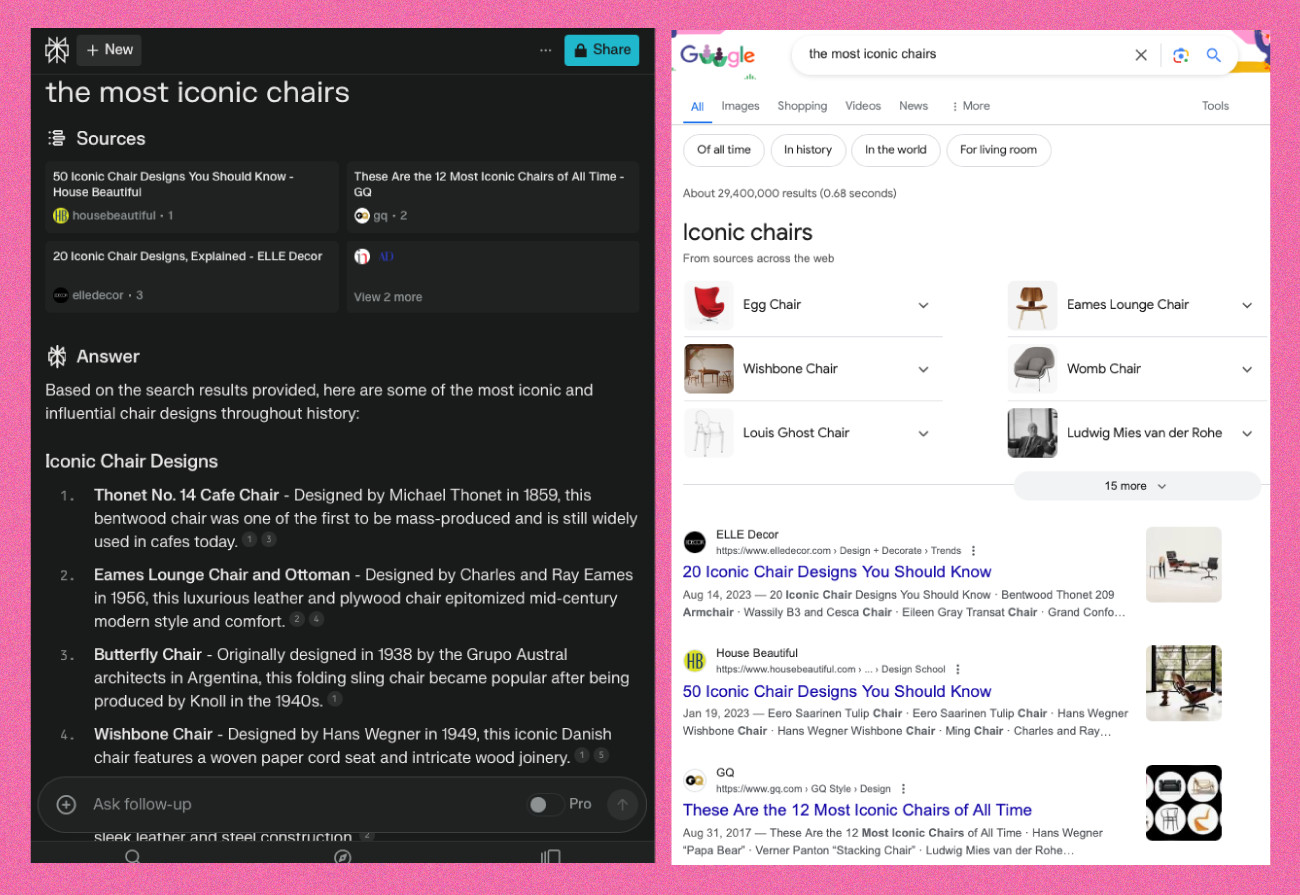
Por Contxto
March 20, 2024
This disclosure comes after Perplexity has been praised by tech CEOs and raised over $100 million in venture capital for its conversational search results, which often resemble those of Google.
Srinivas explained that Perplexity’s system decides which ranking signals are the best indicators of relevance for a particular query and may order its search results similarly to Google’s. This has led to high-profile instances where Perplexity’s results closely matched Google’s, such as searches for “the most iconic chairs” and the best science fiction books of the last decade.
The similarities between Perplexity’s and Google’s search results have caught the attention of Google employees, but Srinivas maintains that Perplexity does not copy Google’s results. Instead, the startup uses its own search engine bots to crawl and index websites, while also accessing data about Bing’s and Google’s ranking signals through automated systems known as APIs.

Many of the responses from Perplexity (left) are based on similar sources that Google Search (right) also utilizes to address identical inquiries., The Information
Perplexity’s use of Google’s ranking data could undermine its claims about the strength of its technology, especially as one of its technology providers, OpenAI, prepares to launch its own consumer search engine. However, the startup has been valued at $1 billion and generates around $15 million in annual recurring revenue, thanks to its premium subscription service and Perplexity Labs product for developers.
While using Google’s search ranking results would likely violate the company’s terms of service, courts have ruled that web scraping is legal. The overlap in Perplexity’s and Google’s results could be due to both services examining the same set of web pages, as many results on Bing are also similar to those on Google.
As the AI search landscape continues to evolve, the revelations about Perplexity’s use of Google’s data raise questions about the unknowns surrounding some of the world’s most valuable new AI services and the potential legal and reputational risks AI developers face.

December 10, 2025
Por Contxto
February 16, 2024